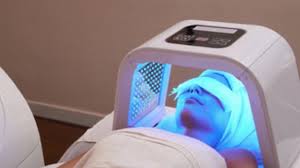Depression Treatment: Effective Options for Managing and Overcoming Depression
Depression is a serious mental illness that involves poor mood and loss of interest in things. It casts a shadow over the lives of persons and affects how a person thinks, feels, and behaves. It affects millions of people around the world. It is a condition characterized by persistent feelings of sadness, hopelessness, and worthlessness that can interfere with a person’s ability to function in everyday life. Symptoms can range from mild to severe and include changes in mood, thoughts, and behavior. People with depression may experience difficulty concentrating, sleeping or eating; have low energy levels; feel worthless or guilty; or even have suicidal thoughts. It can be caused by environmental factors such as trauma or abuse, but there are also genetic predispositions to depression. Treatments for depression vary depending on the severity of the condition, but often involve some combination of medication, psychotherapy, and lifestyle changes. By seeking professional help early on, individuals can improve their quality of life and minimize the impact of this debilitating illness. Please keep reading for details on the following topics:
Types of depression
Causes of depression
Symptoms of depression
Effects of depression on the heart
Manifestation of depression in children and teens
Manifestation of depression in older adults
Ways to help children cope with depression
Risk factors for developing depression
When to seek urgent medical care
Treatment of depression

Types of depression
There are several types of depression, including:
Major depressive disorder: This is the most common type of depression and involves a persistent feeling of sadness or a loss of interest in activities that were once enjoyable. Symptoms can include feelings of hopelessness, fatigue, changes in appetite, difficulty sleeping, and thoughts of suicide.
Persistent depressive disorder: This type of depression involves a longer-lasting depressed mood that lasts for at least two years. Symptoms can be similar to major depressive disorder but may be less severe.
Bipolar disorder: This is a mood disorder that involves alternating periods of depression and mania, which is characterized by an elevated or irritable mood, increased energy, and decreased need for sleep.
Seasonal affective disorder: This is a type of depression that occurs during the winter months, when there is less sunlight. Symptoms can include low energy, increased sleep, and weight gain.
Psychotic depression: This type of depression includes symptoms of depression along with psychosis, such as delusions or hallucinations.
Postpartum depression: This is a type of depression that occurs after childbirth, and can include symptoms such as mood swings, anxiety, and difficulty bonding with the baby.
Antepartum depression: This is a type of depression that occurs during pregnancy, and can include symptoms such as mood swings, anxiety, and difficulty coping with the pregnancy.
RISK FACTORS FOR DEVELOPING DEPRESSION
Risk factors for developing depression include:
- Having a parent or immediate family member with depression increases the likelihood of developing the condition.
- Individuals who have experienced depression before, especially at a young age, are at higher risk for recurrence.
- Chronic illnesses such as diabetes, epilepsy, or thyroid disorders can contribute to depression.
- Conditions like anxiety disorders or conduct disorder may increase the risk of developing depression.
- Experiencing trauma, abuse, or significant loss, such as the death of a loved one or divorce, can trigger depression.
- Misuse of alcohol, drugs, or other substances can exacerbate or lead to depression.
- Lack of social support, isolation, or difficulties in relationships can contribute to depression.
- Being physically or sexually abused during childhood can increase the risk of developing depression later in life.
- Being a victim of bullying or being a bully oneself can contribute to depression, especially in children and adolescents.
- There is evidence of a genetic predisposition to depression, with certain genes playing a role in its development.
Causes of depression
Depression can be caused by a variety of factors, including:
Depression can run in families, suggesting a genetic component to the condition.
Imbalances in certain chemicals in the brain, such as serotonin and dopamine, can contribute to depression.
Traumatic or stressful events, such as the loss of a loved one, divorce, financial difficulties, or a major life change, can trigger depression in some individuals.
Certain medical conditions, such as chronic pain, cancer, heart disease, and thyroid disorders, can contribute to depression.
Substance abuse including alcohol and drug use, can contribute to depression.
Hormonal changes such as those that occur during puberty, pregnancy, and menopause, can contribute to depression.
Seasonal affective disorder (SAD) is a type of depression that occurs during the winter months when there is less sunlight.
Vitamin B deficiency
Chemical imbalances in the brain
Chronic pain
Effects of depression on the heart


Depression can have significant effects on the heart and cardiovascular system. Some potential effects include:
Increased risk of heart disease: People with depression have been shown to be at a higher risk for developing heart disease, including coronary artery disease, heart attack, and stroke. This may be due to the fact that depression can lead to inflammation and other changes in the body that can damage the heart.
Changes in heart rate and rhythm: Depression can affect the autonomic nervous system, which controls heart rate and rhythm. As a result, people with depression may experience changes in heart rate, such as tachycardia (rapid heart rate) or bradycardia (slow heart rate), as well as abnormal heart rhythms.
Increased risk of arrhythmias: In addition to changes in heart rate and rhythm, depression may also increase the risk of developing arrhythmias, which are abnormal heart rhythms that can be life-threatening.
Increased risk of heart failure: Depression has been associated with an increased risk of heart failure, which occurs when the heart is unable to pump enough blood to meet the body’s needs.
Impaired recovery from heart disease: People with depression who have already been diagnosed with heart disease may have a harder time recovering from their condition than those without depression. This may be due to the fact that depression can interfere with the body’s ability to heal and recover.
Symptoms of depression
Symptoms of depression can vary from person to person, but common indicators include:
- Feeling down, empty, or hopeless most of the day, nearly every day.
- Losing interest in activities or hobbies that were once enjoyable.
- Significant weight loss or gain, or changes in appetite.
- Difficulty sleeping, insomnia, or sleeping too much (hypersomnia).
- Feeling tired, sluggish, or having little energy, even after restful sleep.
- Feeling worthless, excessively guilty, or self-critical.
- Trouble focusing, remembering details, or making decisions.
- Feeling irritable, agitated, or on edge.
- Experiencing unexplained aches, pains, or digestive issues.
- Thoughts of death or suicide or engaging in self-harm behaviors.
It’s important to note that experiencing one or more of these symptoms doesn’t necessarily mean a person has depression. Diagnosis should be made by a qualified healthcare professional based on a comprehensive evaluation of symptoms, medical history, and other factors. If you or someone you know is experiencing these symptoms, it’s crucial to seek professional help for accurate diagnosis and appropriate treatment.
Manifestation of depression in children and teens


Depression in children and teens can manifest in different ways than in adults. Some common signs and symptoms of depression in children and teens may include:
Persistent feelings of sadness, hopelessness, or worthlessness
Loss of interest or pleasure in activities that were once enjoyable
Changes in appetite or weight
Difficulty sleeping or sleeping too much
Fatigue or loss of energy
Irritability or anger
Difficulty concentrating, making decisions, or remembering things
Withdrawal from friends and family
Physical symptoms such as headaches or stomachaches
Thoughts of death or suicide
Manifestation of depression in older adults
Depression in older adults can manifest differently than in younger adults. Common signs and symptoms of depression in older adults may include:
Persistent sadness or anxiety
Lack of energy or motivation
Loss of interest in hobbies or activities
Social withdrawal and isolation
Difficulty sleeping or sleeping too much
Unexplained physical symptoms, such as pain or digestive problems
Cognitive decline, including memory problems or difficulty concentrating
Neglecting personal care or hygiene
Loss of appetite or weight loss
Irritability or mood swings
Thoughts of suicide or self-harm
It’s important to note that depression is not a normal part of aging, and older adults may be hesitant to seek help or may be misdiagnosed due to their symptoms being attributed to other conditions, such as dementia or chronic medical conditions. Therefore, it’s important for family members, caregivers, and healthcare professionals to be aware of the signs of depression in older adults and to encourage them to seek professional help if they are experiencing any of these symptoms.
WAYS TO HELP CHILDREN COPE WITH DEPRESSION
Supporting children with depression involves a combination of strategies to address their emotional needs and promote overall well-being. Here are some ways to help children cope with depression:
- Encourage communication: Create an open and supportive environment where children feel comfortable expressing their feelings and concerns. Listen actively and validate their emotions without judgment.
- Provide reassurance and support: Offer encouragement, praise their efforts, and reassure them that they are not alone. Let them know that it’s okay to ask for help when needed.
- Help them develop coping skills: Teach children healthy ways to manage stress and cope with difficult emotions. Encourage activities like deep breathing, mindfulness, or journaling to help them express and process their feelings.
- Maintain routines: Establish consistent daily routines for meals, sleep, and activities to provide stability and predictability. Routines can help children feel secure and supported during challenging times.
- Promote healthy habits: Encourage regular physical activity, nutritious eating, and adequate sleep to support overall well-being. Physical activity can boost mood and energy levels, while a balanced diet and good sleep hygiene can improve mental health.
- Foster social connections: Encourage children to maintain friendships, participate in social activities, and engage in hobbies they enjoy. Social support from peers and positive social interactions can help combat feelings of loneliness and isolation.
- Seek professional help: If symptoms persist or interfere with daily functioning, seek guidance from a mental health professional or healthcare provider. Therapy, counseling, or medication may be recommended to help children manage depression effectively.
- Educate yourself and others: Learn about depression and its impact on children to better understand their experiences and needs. Educate family members, teachers, and other caregivers to create a supportive network for the child.
- Be patient and compassionate: Understand that recovery from depression takes time, and children may experience ups and downs along the way. Be patient, empathetic, and supportive throughout their journey to recovery.
-
Foster a sense of hope and optimism: Encourage children to focus on their strengths, set realistic goals, and cultivate a positive outlook for the future. Remind them that with support and resilience, they can overcome challenges and thrive.
MANAGEMENT OF DEPRESSION


The management can involve a combination of different approaches, including medication, psychotherapy, lifestyle changes, and support from friends and family. Here are some common strategies that may be used to manage depression:
Counselling: a vital component of treating depression in children and adolescents. Various therapeutic approaches can be employed to address their emotional and behavioral needs effectively. Here are some types of counseling commonly used to help children cope with depression:
- Cognitive-behavioral therapy (CBT): CBT is a structured form of therapy that focuses on identifying and challenging negative thought patterns and behaviors contributing to depression. Children learn coping skills, problem-solving techniques, and strategies to change unhelpful thinking patterns.
- Interpersonal therapy (IPT): IPT emphasizes improving interpersonal relationships and communication skills to address social and relationship difficulties contributing to depression. Children explore their feelings, conflicts, and interactions with others to develop healthier relationships and support networks.
- Problem-solving therapy: Problem-solving therapy helps children develop practical problem-solving skills to effectively manage stressors and challenges contributing to their depression. Children learn to identify problems, generate solutions, and implement action plans to address specific concerns.
- Family therapy: Family therapy involves the child and their family members in the therapeutic process to address family dynamics, communication patterns, and conflicts contributing to the child’s depression. Family members learn to express emotions, communicate effectively, and support each other in managing depression.
- Play therapy: Play therapy utilizes play and creative activities to help children express and process their emotions, experiences, and concerns in a safe and supportive environment. Play therapy is particularly beneficial for young children or those with developmental delays who may have difficulty verbalizing their feelings.
Medication: Antidepressant medications, such as selective serotonin reuptake inhibitors (SSRIs), serotonin and norepinephrine reuptake inhibitors (SNRIs), and tricyclic antidepressants (TCAs), can be used to treat depression. These medications can help regulate the levels of neurotransmitters in the brain that affect mood.
Psychotherapy: Several types of psychotherapy, such as cognitive-behavioral therapy (CBT), interpersonal therapy (IPT), and psychodynamic therapy, can be helpful in treating depression. Psychotherapy can help individuals identify and change negative thoughts and behaviors that contribute to depression.
Lifestyle changes: Simple lifestyle changes, such as regular exercise, a healthy diet, adequate sleep, and avoiding drugs and alcohol, can help improve mood and reduce symptoms of depression.
Social support: Social support from friends and family can be an important component of depression management. Joining a support group or seeking counseling can also provide additional support.
Complementary therapies: Some people with depression may find complementary therapies, such as acupuncture, massage therapy, or herbal supplements, helpful in reducing symptoms.
Professional help: It’s important to note that the best treatment plan for depression will depend on the individual and their specific symptoms. A mental health professional can work with an individual to develop a personalized treatment plan that addresses their unique needs. If you or someone you know is experiencing symptoms of depression, it’s important to seek help from a healthcare provider.
Home treatment of Depression
While home treatment may not be sufficient for individuals with moderate to severe depression, there are some steps that can be taken to help manage symptoms of mild depression at home. It’s important to note that these home treatments may not be effective for everyone and should not be used as a substitute for professional treatment. If you or someone you know is experiencing symptoms of depression, it’s important to seek help from a healthcare provider.
Healthy eating: Eating a balanced diet that includes whole grains, fruits and vegetables, lean protein, and healthy fats can help improve mood and energy levels. Avoid following fad diets because they can limit important nutrients from the diet
Adequate sleep: Getting enough sleep is important for maintaining good mental health. Aim for 7-8 hours of sleep per night and try to establish a regular sleep routine.
Relaxation techniques: Practicing relaxation techniques, such as deep breathing, meditation, or yoga, can help reduce stress and improve mood.
Social support: Spending time with friends and family, joining a support group, or talking to a therapist can provide social support and help reduce feelings of isolation. Starting friendships by joining clubs, reconnecting with old peers, and following other interest groups to share experiences and learn coping strategies
Hobbies and interests: Engaging in activities that you enjoy, such as reading, listening to music, or pursuing a hobby, can help improve mood and reduce stress.
Coffee
There is some evidence to suggest that coffee consumption may be associated with a lower risk of depression. Several studies have found that regular coffee drinkers have a lower risk of developing depression compared to non-coffee drinkers. The exact mechanisms behind the potential protective effect of coffee on depression are not fully understood. It’s possible that caffeine, which is a central nervous system stimulant, may play a role in improving mood and reducing the risk of depression. Additionally, coffee contains a variety of antioxidants and other compounds that may have beneficial effects on the brain.
However, it’s worth noting that excessive coffee consumption can have negative effects on mental health and overall well-being. Too much caffeine can cause anxiety, restlessness, and disrupted sleep, which can exacerbate symptoms of depression in some individuals. Additionally, coffee consumption may interact with certain medications, including some antidepressants, so it’s important to talk to a healthcare professional about any potential risks or interactions before increasing your coffee intake. Avoid drinking close to bedtime because it can contribute to insomnia.
Vitamin B


There is evidence to suggest that certain B vitamins may play a role in depression. Specifically, vitamins B6, B9 (folate), and B12 have been linked to mood regulation and mental health. Studies have found that people with depression tend to have lower levels of these B vitamins compared to people without depression. Additionally, supplementation with these vitamins has been shown to improve symptoms of depression in some people. It’s also worth noting that while taking B vitamin supplements can be helpful for some people with depression, they should not be seen as a substitute for other treatments, such as therapy or medication. Sources can be found in fruits, vegetables (spinach, asparagus and avocado) and lentils.
Selenium


Selenium is a mineral that is essential for the proper functioning of the body, and it has been shown to have antioxidant and anti-inflammatory properties. This is an essential nutrient that increases alertness and reduces anxiety. Some studies have found that people with depression tend to have lower levels of selenium compared to people without depression. Additionally, supplementation with selenium has been shown to improve mood and reduce symptoms of depression in some people. Sources of selenium include seafood, poultry, mushrooms, vegetables and whole wheat. It’s also important to keep in mind that selenium supplementation can be harmful if taken in excess, so it’s important to talk to a healthcare professional before starting any supplement regimen. Additionally, selenium is found in a variety of foods, including Brazil nuts, seafood, and eggs, so it’s possible to get enough of this nutrient through a healthy and balanced diet.
Omega-3


Omega-3 is an essential fatty acid found in fish that plays a major role in improving brain function and mood. They are important for brain health, and they have been shown to have anti-inflammatory and neuroprotective effects. The omega-3 fatty acids also fight depression by reducing inflammation, boosting serotonin levels, and maintaining the function of the neurotransmitters in the brain functioning. Some examples of omega-3 are found in fish such as salmon, mackerel, tuna and herring. Other sources of omega-3 include walnuts, corn, soya bean, flax seeds, dark green leafy vegetables. It’s also worth noting that while taking omega-3 fatty acid supplements can be helpful for some people with depression, they should not be seen as a substitute for other treatments, such as therapy or medication. Additionally, omega-3 fatty acids can be found in a variety of foods, including fatty fish, flaxseed, and walnuts, so it’s possible to get enough of this nutrient through a healthy and balanced diet.
Music therapy


Music therapy is a form of therapy that uses music to address physical, emotional, cognitive, and social needs of individuals. It has been shown to be an effective treatment for depression, particularly when used in combination with other forms of treatment such as medication and psychotherapy. It eases pain, depression and stress. By playing an instrument, listening to music or singing, one can feel better significantly. There are several ways in which music therapy can help alleviate symptoms of depression. For example, listening to music can have a calming effect on the mind and body, which can help reduce feelings of anxiety and stress that are often associated with depression. Additionally, playing music or singing can provide a sense of accomplishment and enjoyment, which can help boost mood and self-esteem. Music therapy can also be used to help individuals express their emotions and feelings in a safe and non-judgmental environment, which can help facilitate the therapeutic process. It’s worth noting that while music therapy can be a helpful treatment for depression, it may not be effective for everyone. It’s important to talk to a healthcare professional about the best course of treatment for you.
St. John’s wort


St. John’s wort is a plant-based supplement that has been used for centuries to treat various health conditions, including depression. It’s believed to work by increasing the levels of serotonin, dopamine, and norepinephrine in the brain, which are neurotransmitters that play a role in mood regulation. This is a herbal supplement used as a short-term measure to combat mild to moderate depression. However, it’s important to note that St. John’s wort can interact with other medications and supplements, including antidepressants, birth control pills, and blood thinners. It can also cause side effects such as dry mouth, dizziness, and gastrointestinal symptoms. Additionally, the quality and potency of St. John’s wort supplements can vary widely, and some supplements may not contain the active ingredients that are necessary for it to be effective. Therefore, it’s important to talk to a healthcare professional before taking St. John’s wort or any other supplement to treat depression. They can help determine whether it’s a safe and appropriate treatment option for you.
Light therapy


Light therapy, also known as bright light therapy or phototherapy, is a treatment for seasonal affective disorder (SAD) and other types of depression. It involves sitting in front of a light box that emits bright light, typically for 30 minutes to 2 hours a day. Light therapy helps to regulate the body’s circadian rhythm, which is the internal “biological clock” that helps regulate sleep and wake cycles, as well as other physiological processes. It’s believed that exposure to bright light can help reset the circadian rhythm, which can improve mood and energy levels. Additionally, light therapy has few side effects, making it a relatively safe treatment option for depression. However, it’s important to note that light therapy can cause side effects such as headache, eyestrain, and nausea in some people. It’s also important to use a light box that emits the correct amount of light, and to use it under the guidance of a healthcare professional. If you are considering light therapy for depression, it’s important to talk to a healthcare professional to determine whether it’s a safe and appropriate treatment option for you, and to get guidance on the proper use of a light box. An occasional dose of sunlight or any form of light releases serotonin (a neurotransmitter in the brain) to bring feelings of joy. Researchers believe that darkness triggers sadness and depression.
Aromatherapy


Aromatherapy is a holistic therapy that uses essential oils and plant extracts to promote physical, emotional, and psychological well-being. It’s believed that inhaling certain scents can affect the brain and nervous system, leading to a range of therapeutic benefits. Essential oils that are commonly used in aromatherapy for depression include lavender, basil, ylang-ylang, sandalwood, rose, jasmine, rosemary, patchouli, chamomile, bergamot and geranium. These oils are believed to have calming and soothing effects on the mind and body, which can help alleviate symptoms of depression. While aromatherapy is generally considered safe, it’s important to use caution when using essential oils. Some oils can cause skin irritation or allergic reactions, and some oils may interact with medications or exacerbate certain health conditions. Additionally, aromatherapy should not be used as a substitute for medical treatment for depression.
Join a gym


Joining a gym or engaging in regular physical activity can be a helpful way to manage symptoms of depression. Exercise has been shown to improve mood, reduce symptoms of anxiety and stress, and increase energy levels. Here are some potential benefits of joining a gym to help with depression: Joining a gym can provide an opportunity to connect with others who share similar interests in physical activity. This can help increase social support and reduce feelings of isolation, which can be a common symptom of depression.
Exercise


Exercise has been shown to improve sleep quality and reduce symptoms of insomnia, which can be a common symptom of depression. Regular exercise has been shown to be an effective treatment for depression. Exercise can be performed for at least 30 minutes three times weekly to help overcome depression. Exercise not only stimulates the mind but improves sleep. Types of exercises include jogging, cycling, hiking, brisk walking and using a treadmill. Regular exercise can help improve self-esteem and self-confidence. Achieving fitness goals and seeing improvements in physical health can provide a sense of accomplishment and improve self-worth. Exercise releases endorphins, which are natural chemicals in the body that improve mood and reduce feelings of stress and anxiety. Regular exercise can help reduce symptoms of depression and improve overall well-being. Depression can cause feelings of fatigue and low energy. Regular exercise can help increase energy levels and reduce feelings of tiredness. It’s important to note that exercise should be used as a complementary treatment alongside other approaches, such as medication and psychotherapy, for individuals with moderate to severe depression. It’s also important to consult with a healthcare provider before beginning a new exercise program, especially if you have any underlying health conditions.
A handy exercise routine to use as relaxation
Find a quiet and relaxing location
Adopt a comfortable sit
Close your eyes to try to relax the body
Start by taking a few slow and deep breaths
Clench the muscles of your toes whilst counting to 10
Then relax the muscles whilst counting to 10
Repeat the 2 previous steps with the muscles of the leg, abdomen, chest, arms, shoulders, neck and face
Feel the body becoming calmer
Repeat the process as often as necessary


WHEN TO SEEK URGENT MEDICAL CARE
Knowing when to seek urgent medical care for depression is crucial for ensuring the safety and well-being of individuals experiencing severe symptoms. Here are some indicators that may necessitate immediate medical attention:
- If an individual expresses thought of suicide or has a plan to harm themselves, it is essential to seek immediate medical help. Contact emergency services or a crisis hotline for assistance.
- Intense feelings of hopelessness or helplessness that seem overwhelming and unmanageable may indicate a need for urgent intervention.
- Psychotic symptoms: Hallucinations, delusions, or a disconnection from reality require immediate medical attention to ensure the safety of the individual.
- Inability to care for oneself: If an individual neglects personal hygiene, stops eating or drinking, or is unable to take care of basic needs, urgent medical care may be necessary.
- Severe mood swings: Extreme fluctuations in mood that significantly impact daily functioning may indicate a need for immediate medical evaluation.
- Expressed intent to harm others or exhibits violent behavior, urgent medical intervention is warranted to ensure the safety of both the individual and others.
- Concerns about safety of an individual due to their behavior or expressed thoughts, it is essential to err on the side of caution and seek medical help promptly.
- If symptoms of depression become unmanageable or uncontrollable, despite attempts at self-care or previous treatment, it may be necessary to seek urgent medical attention for assessment and intervention.
It’s crucial to take any signs of severe depression seriously and to seek help promptly. If in doubt, contact emergency services, a healthcare provider, or a mental health professional for guidance and support. If you or someone you know are struggling with depression, it’s important to talk to a healthcare professional about the best course of treatment for you. Speak to a licensed health care practitioner before taking any herbal supplements or medication. Remember that recovery from depression is a journey, and it may take time and patience. Be kind to yourself, celebrate your successes, and seek help when you need it.
Disclaimer: The information provided in this content is for general informational purposes only. It is not intended as medical or healthcare advice, diagnosis, or treatment. Always seek the advice of a qualified healthcare professional with any questions you may have regarding a medical condition or healthcare decisions.

